I have created a core data project in xcode 8.2, After that I created an entity say "TestEntity" in .xcdatamodeld
I am creating entity object by using following code as per given in some tutorials for swift3. enter link description here
let appDele = (UIApplication.shared.delegate) as! AppDelegate
let cont = appDele.persistentContainer.viewContext
let ent = TestEntity(context:cont)
But I got an error "use of unresolved identifier 'TestEntity'."


